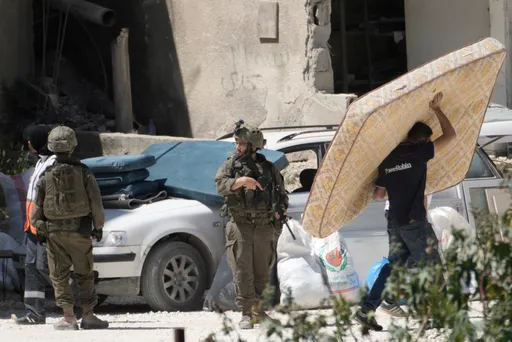The United States has urged Sri Lankan leaders to act quickly to seek long-term solutions after the president, chased from his residence by angry protesters, announced his resignation.
As President Gotabaya Rajapaksa prepares to step down, the United States calls on "the Sri Lankan parliament to approach this juncture with a commitment to the betterment of the nation — not any one political party," a State Department spokesperson said on Sunday as Secretary of State Antony Blinken visited Thailand.
"We urge this government or any new, constitutionally selected government to work quickly to identify and implement solutions that will achieve long-term economic stability and address the Sri Lankan people's discontent over the worsening economic conditions, including power, food and fuel shortages."
The United States warned against attacks on protesters or journalists, but also criticised violence on Saturday as a mob stormed Rajapaksa's residence.
"The Sri Lankan people have the right to peacefully raise their voices, and we call for the full investigation, arrest and prosecution of anyone involved in any protest-related violent incidents," the spokesperson said.
Rajapaksa has had a rocky relationship with the United States over his dismissal of allegations of war crimes in the bloody finale of Sri Lanka's decades-long civil war and his close economic partnership with China.
Both the United States and China have offered in recent weeks to support the once-prosperous island as it grapples with unprecedented fuel and food shortages.
READ MORE: Sri Lanka president agrees to 'step down', PM's home set afire in protests
Steps to overcome crisis
The International Monetary Fund (IMF) said it is hoping for a resolution to Sri Lanka's political turmoil that will allow a resumption of talks for a bailout package after a violent day of protests.
"We hope for a resolution of the current situation that will allow for resumption of our dialogue on an IMF-supported program," the IMF said in a statement.
So far Sri Lanka has been muddling through, mainly supported by $4 billion in credit lines from India. An Indian delegation came to the capital, Colombo, in June for talks on more assistance, but Wickremesinghe warned against expecting India to keep Sri Lanka afloat for long.
“Sri Lanka pins last hopes on IMF,” read a June headline in the Colombo Times. The government is in negotiations with the IMF on a bailout plan, and Wickremesinghe has said he expected to have a preliminary agreement later this summer.
Sri Lanka has also sought more help from China. Other governments like the U.S., Japan and Australia have provided a few hundred million dollars in support.
Earlier in June, the United Nations launched a worldwide public appeal for assistance. So far, projected funding barely scratches the surface of the $6 billion the country needs to stay afloat over the next six months.
To counter Sri Lanka’s fuel shortage, Wickremesinghe told The Associated Press in a recent interview that he would consider buying more steeply discounted oil from Russia.
READ MORE: Sri Lanka leader flees official residence amid angry protests























